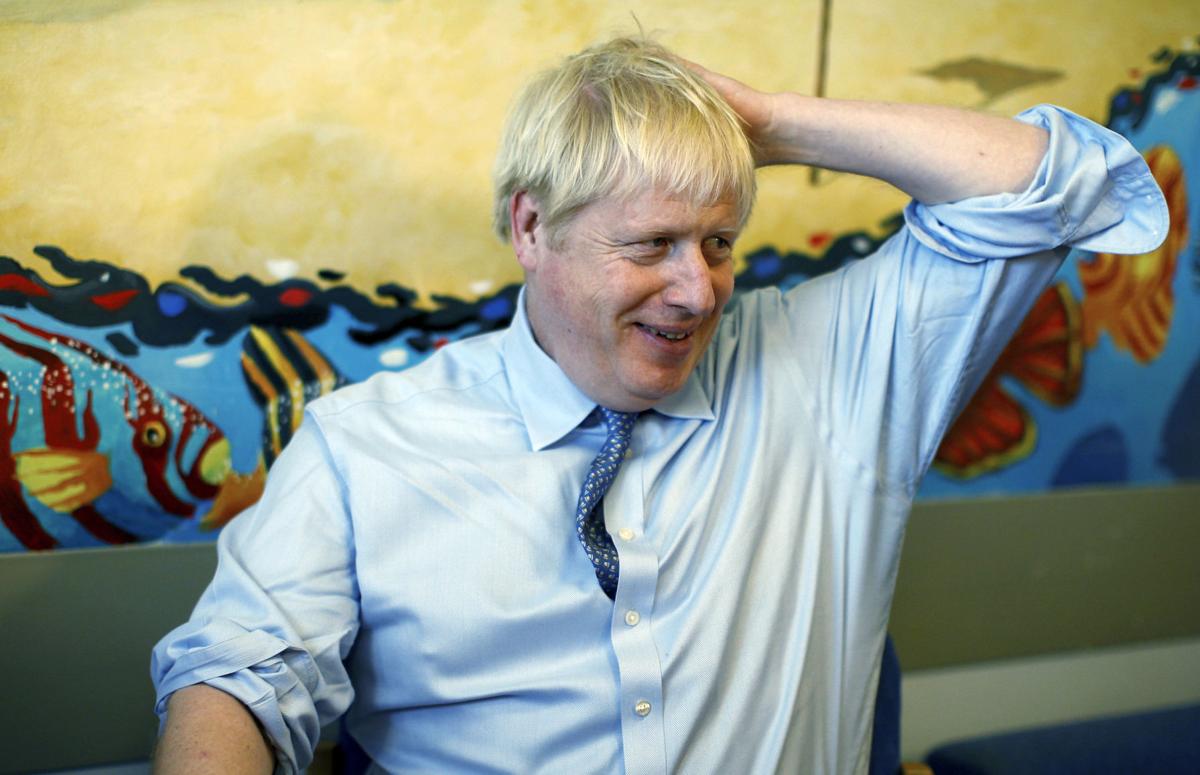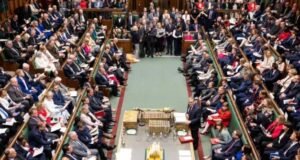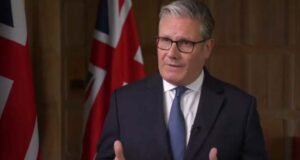
Photo: Britain’s Prime Minister Boris Johnson speaks with staff during a visit to the Royal Cornwall Hospital in Truro, south-west England, Monday Aug. 19, 2019.
London, Aug 19 : British Prime Minister Boris Johnson on Monday dismissed the notion of recalling Parliament from its summer break after leaked government documents warned of widespread shortages and border delays in the event of a “no-deal” Brexit.
The Sunday Times newspaper published the expectations of what the British government if the country leaves the European Union without a withdrawal agreement. Among the most serious: disruptions to the supply of medicines, a decrease in fresh food availability and potential fresh water shortages due to possible interruptions in the importation of water treatment chemicals.
Economists have long predicted such grim scenarios, but Brexit backers have dismissed the forecasts as scaremongering. Johnson’s Downing Street office said the published dossier was “out of date,” and that the House of Commons would return as planned on Sept. 3.
“I’m not pretending that there won’t be bumps on the road,” Johnson said. “There will be … but if everybody puts their minds to it I have absolutely no doubt that we can get ready.”
The opposition Labour Party, which is trying to delay Brexit and organize a government of national unity, pointed to the report as another sign that no-deal must be avoided. Senior party official John McDonnell supported the demands of more than 100 lawmakers who signed a letter demanding that Johnson cut short Parliament’s summer recess to permit debate on the Brexit crisis.
Johnson is expected to underscore his commitment to leaving the EU on Oct. 31, with or without a deal, later this week when he meets with German Chancellor Angela Merkel and French President Emmanuel Macron ahead of the G-7 summit in Biarritz.
Macron invited Johnson for talks Thursday on Britain’s pending departure from the European Union “in respect of the European principles agreed among the 27” remaining EU countries, according to Macron’s office. Macron insists the EU should not renegotiate the hard-fought withdrawal agreement reached with Britain’s previous government.
Johnson insisted he wanted an agreement and was ready to work for one. The prime minster said it was up to others to compromise.
“Now of course our friends and partners on the other side of the Channel are showing a little bit of reluctance at the moment to change their position,” he said. “That’s fine — I’m confident that they will — but in the meantime we have to get ready for a no-deal outcome.”
 Weekly Bangla Mirror | Bangla Mirror, Bangladeshi news in UK, bangla mirror news
Weekly Bangla Mirror | Bangla Mirror, Bangladeshi news in UK, bangla mirror news







